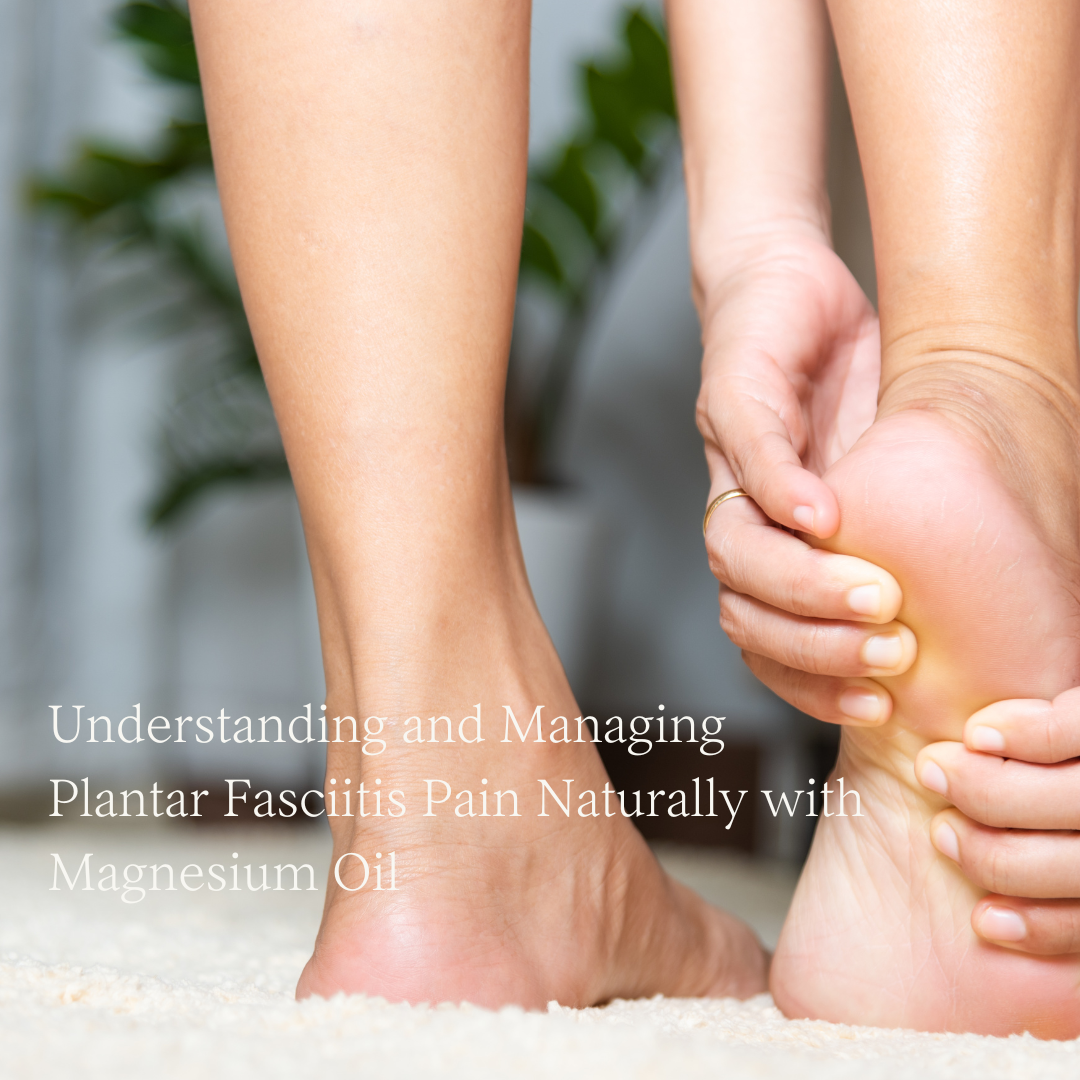
The Connection Between Magnesium Deficiency and Chronic Pain
Chronic pain is a condition that affects millions of people around the world, and it can drastically reduce one’s quality of life. Whether it manifests as muscle aches, joint pain, migraines, or other symptoms, chronic pain can feel overwhelming and endless. While many rely on pain medications to cope, these options often only mask the problem temporarily. Increasingly, researchers are discovering that magnesium deficiency may be a significant contributor to chronic pain, and addressing this deficiency could lead to lasting relief.
One natural solution to this problem is Magnesium Oil, which is applied topically and absorbed directly through the skin. Magnesium Oil offers a convenient way to increase magnesium levels and may help alleviate pain more effectively. In this article, we’ll dive deeper into the connection between magnesium deficiency and chronic pain, and how using Magnesium Oil could be the key to managing your pain naturally.
What Is Magnesium and Why Is It Important?
Magnesium is a vital mineral that plays an essential role in over 300 biochemical reactions in the body. It’s responsible for regulating nerve function, muscle contractions, and energy production, among other critical processes. Magnesium also helps maintain normal blood pressure and supports bone health, making it essential for overall well-being.
Despite its importance, magnesium deficiency is widespread. It’s often caused by poor dietary habits, stress, excessive alcohol consumption, and certain health conditions. This deficiency can lead to a host of health problems, including increased muscle tension, inflammation, and nervous system overactivity – all of which are factors that contribute to chronic pain.
Understanding Chronic Pain
Chronic pain is any pain that lasts for more than three months, often persisting long after the injury or illness that caused it has healed. It can result from conditions like arthritis, fibromyalgia, migraines, or musculoskeletal disorders. The pain can be constant or intermittent, but its prolonged nature can wear down a person physically and mentally.
Living with chronic pain can be exhausting. It often leads to fatigue, sleep disturbances, anxiety, and depression. As conventional treatments like pain medications provide temporary relief at best, there’s a growing interest in alternative solutions that address the root causes of pain, such as magnesium deficiency.
Magnesium Deficiency: A Hidden Epidemic
Magnesium deficiency is more common than most people realise. Studies show that a significant portion of the population does not get enough magnesium from their diet, with factors like stress, aging, and certain medical conditions further depleting magnesium levels. Common signs of magnesium deficiency include muscle cramps, headaches, fatigue, irritability, and sleep disturbances – all symptoms that can also worsen chronic pain.
Given that magnesium plays such a critical role in muscle and nerve function, it’s no surprise that low levels of this mineral can exacerbate pain conditions. Unfortunately, modern diets, which are often high in processed foods and low in magnesium-rich fruits, vegetables, and whole grains, only make the situation worse.
The Link Between Magnesium Deficiency and Chronic Pain
There’s a growing body of research linking magnesium deficiency to various types of chronic pain. Studies suggest that magnesium has anti-inflammatory properties and helps regulate nerve function, both of which are crucial for reducing pain. Low magnesium levels are commonly associated with conditions like migraines, fibromyalgia, and chronic back pain.
Magnesium is also necessary for proper muscle relaxation, and its deficiency can lead to muscle tension and spasms, both of which contribute to persistent pain. Additionally, magnesium’s role in balancing calcium levels is essential, as an imbalance can lead to overactive nerve signaling, intensifying pain signals sent to the brain.
Symptoms of Magnesium Deficiency
The symptoms of magnesium deficiency are often subtle and may not be immediately recognised as related to low magnesium levels. These include:
- Muscle cramps and spasms
- Chronic headaches or migraines
- Fatigue and low energy levels
- Anxiety and irritability
- Difficulty sleeping or insomnia
All of these symptoms can exacerbate existing pain conditions, making chronic pain even more unbearable. Addressing magnesium deficiency can help alleviate these symptoms and improve overall well-being.
Can Magnesium Help Relieve Chronic Pain?
The connection between magnesium deficiency and chronic pain has led to increased interest in using magnesium to relieve pain. Research indicates that boosting magnesium levels can help reduce pain in conditions such as migraines, fibromyalgia, and even certain types of arthritis. Magnesium’s ability to reduce muscle tension, lower inflammation, and regulate nerve function makes it a promising natural remedy for those struggling with chronic pain.
Topical Magnesium Therapy: A Convenient Solution
One of the most effective ways to increase magnesium levels in the body is through topical application. Magnesium Oil, a solution of magnesium chloride, is applied directly to the skin where it can be absorbed into the bloodstream. This method bypasses the digestive system, which can limit magnesium absorption from oral supplements, making topical magnesium a more efficient option.
Benefits of Using Magnesium Oil for Pain Relief
Magnesium Oil offers several benefits for people dealing with chronic pain:
- Fast absorption: Magnesium oil is absorbed through the skin, delivering magnesium directly to areas of pain, such as sore muscles or joints.
- Targeted relief: Applying magnesium oil directly to painful areas can provide more focused relief compared to oral supplements.
- Non-invasive: Unlike injections or other invasive treatments, magnesium oil is simple to use and can be applied at home.
Why Magnesium Oil is Superior to Other Pain Management Options
While oral magnesium supplements are helpful, they often come with limitations such as low absorption rates and gastrointestinal side effects. Topical magnesium oil, on the other hand, is absorbed quickly through the skin, providing a more efficient method of increasing magnesium levels without any digestive discomfort. Moreover, magnesium oil offers a natural alternative to over-the-counter painkillers, which may come with unwanted side effects when used long-term.
How to Incorporate Magnesium Oil Into Your Pain Management Plan
Incorporating magnesium oil into your daily routine is simple. For muscle aches and joint pain, spray magnesium oil onto the affected area and gently massage it into the skin. For headaches, apply a small amount of oil to your temples and the back of your neck. You can use magnesium oil once or twice daily, depending on the severity of your pain.
Real-Life Success Stories
Many people have experienced relief from chronic pain by incorporating magnesium oil into their pain management plans. Individuals suffering from conditions like fibromyalgia and migraines have reported significant reductions in pain after using magnesium oil regularly. These success stories highlight the power of magnesium in combating chronic pain naturally.
Additional Benefits of Magnesium Beyond Pain Relief
Magnesium does more than just alleviate pain. It also offers several additional health benefits, including:
- Improved sleep quality
- Reduced anxiety and stress
- Better muscle recovery after exercise
These added benefits make magnesium oil a valuable tool for overall health and wellness.
Other Natural Ways to Support Magnesium Levels
In addition to using magnesium oil, you can support your magnesium levels by eating a diet rich in magnesium-containing foods. Some of the best sources of magnesium include:
- Leafy green vegetables (spinach, kale)
- Nuts and seeds (almonds, pumpkin seeds)
- Whole grains (quinoa, brown rice)
- Legumes (black beans, chickpeas)
Additionally, reducing stress and staying hydrated can help maintain healthy magnesium levels.
Conclusion
The connection between magnesium deficiency and chronic pain is clear: low magnesium levels can intensify pain, while increasing magnesium intake may offer significant relief. By incorporating Magnesium Oil into your pain management plan, you can target the root cause of pain naturally and effectively. Not only does magnesium oil help reduce muscle tension and inflammation, but it also promotes relaxation and overall well-being. If you’re struggling with chronic pain, consider giving magnesium oil a try and experience its benefits for yourself.
The information provided by The Base Collective is not intended to be used as medical advice and should not take the place of professional or medical advice. Always seek the guidance of your doctor or other qualified health professionals with any questions you may have regarding your health or medical condition.








Leave a comment
This site is protected by hCaptcha and the hCaptcha Privacy Policy and Terms of Service apply.